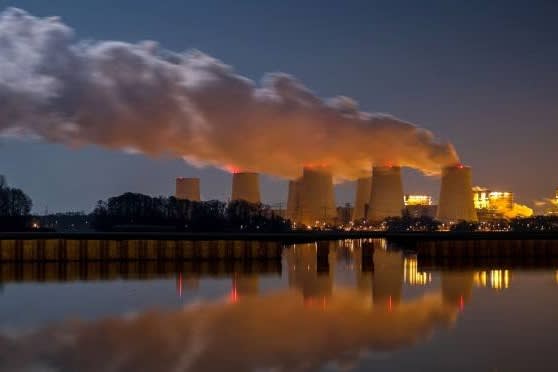Climate change: TV broadcasters pick dogs over global warming
Climate change updates
Sign up to myFT Daily Digest to be the first to know about Climate change news.
Next month, upwards of 30,000 people will swoop on the Scottish city of Glasgow to discuss climate change. Politicians, non-profit organisations, companies and religious leaders will all be in attendance at the UN’s COP26 conference. What is less clear is how the messages and pledges that emanate from that august gathering will be received back home.
If TV takes the nation’s pulse, the answer is: rather halfheartedly. A report by albert, the TV industry-backed green project, found that mentions of climate change across the UK’s six broadcasters — excluding daily news programming — fell by a tenth last year. Global warming merited nearly a fifth fewer name checks than in 2019.
Last year the world was admittedly preoccupied with other concerns. Covid-19 was noted a quarter of a million times — 20 times as often as climate change. Lockdowns came up 11 times as much. But all three were trounced by mentions of dogs. Even Shakespeare garnered more airtime than climate change.

It could be worse. In America, coverage halved on nightly news and Sunday morning political programmes across mainstream broadcasters ABC, CBS, NBC plus the Sunday show on right-leaning Fox News cable channel. These shows spent a grand total of under two hours on global warming last year, according to left-leaning think-tank Media Matters. Coverage of hurricanes and other climate-related disasters failed to join dots. Just 4 per cent of the aggregated 774 news segments on Hurricane Ida mentioned the impact of climate change.

This is not the way that information disseminates. But the odds are on a better showing this year, and not just because of COP26. For one, difficulties in producing new shows in lockdown meant broadcasters relied more on recycled material. This year the US also has a president who, unlike his predecessor, has committed to climate change policies. That should ensure more airtime.
Broadcasters keen to spread the news should take lessons from continuing changes to the explanation of climate change. For most people, activities are easier to grasp than concepts. Mentions of amorphous climate change fell year-on-year, according to albert. But carbon footprint — which anyone with access to Google can calculate — was up. So were discussions on reuse, something easily done at home. It is serendipity that reuse chimes with resuscitated British pursuits like knitting, home renovations and sewing bees. Household matters always ring clearest.
Climate Capital

Where climate change meets business, markets and politics. Explore the FT’s coverage here.
Are you curious about the FT’s environmental sustainability commitments? Find out more about our science-based targets here